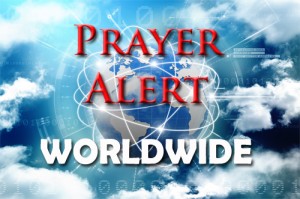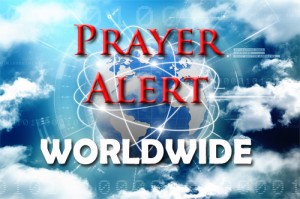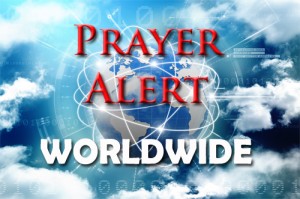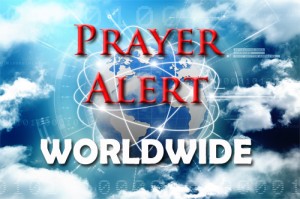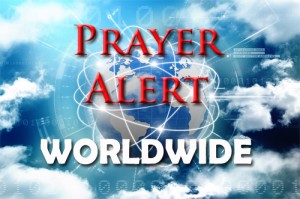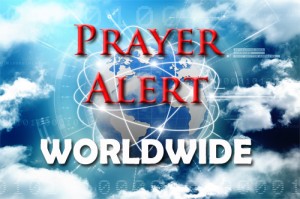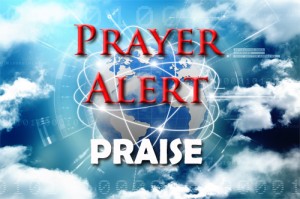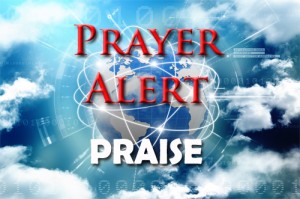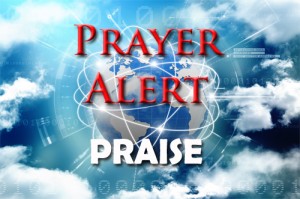
David Fletcher
David Fletcher is Prayer Alert’s Editor.
He is part of a voluntary team who research, proof-read and publish Prayer Alert each week.
If you would like to make a donation towards our running costs, please click here.
It's a volatile neighbourhood with conflicts, terrorism, and food shortages on all sides. With Libya to its north, Sudan to its east, Central African Republic and Cameroon to its south, and Nigeria to its west, Chad continually attracts the masses seeking refuge when trouble occurs across this region. But there is little refuge to be found, only inadequate infrastructure, instability, conflict, immense poverty, notorious governmental corruption and threats of terrorism. The people of Chad have urgent physical needs. But there is an even greater tragedy that affects eternity: there are more unreached people groups in Chad than in any other nation on earth. The good news is that the number of Muslims turning to Christ is steadily growing. Efforts to reach the unreached are seeing fruit! The door in Chad remains miraculously open to the Gospel.
From March to May intercessors will be praying for healing for the 'heart' of South Africa, focusing on reconciliation and deep-rooted pain and animosity harboured there. Since January, intercessors have prayed for the deep-seated emotions harboured against others, stemming from events in the past. In March many will continue to go to God with expectant hearts, asking Him to reveal any form of sin that affects others. Also, from 18 to 20 March, teens and youth leaders will unite in a dynamic programme of talks, worship, multi-media platforms, spiritual-encounter stations, workshops, discussions, counselling, fellowship and fun. The event is called #imagine and aims to see radical change by placing those who will lead in twenty years' time on the right spiritual path now. Three events,with the same content, will take place simultaneously in the Western Cape, Gauteng and the Eastern Cape. We can join the intercessors: see
Cybersex trafficking is a new and devastating form of slavery. It is a rapidly growing problem as internet access increases everywhere. Now, paedophiles worldwide can direct the live sexual abuse of boys and girls, many under ten years old. For a crime, it’s low risk, easy to do, with high potential reward. 54% of victims rescued in International Justice Mission (IJM) cases are between one and twelve years old. Victims can be exploited in any location with a computer and the internet, or just a mobile phone. Philippine authorities are already receiving thousands of referrals a month, like Cassie, who was tricked to move to Manila when she was twelve. She had big dreams, but what she found was a nightmare - being forced to perform sex acts in front of a camera.
As previously reported (see Prayer Alert 17 February), Gambia's new president Adama Barrow has announced that the country will no longer officially be called an Islamic republic, reversing the decision made by his predecessor. Christians have been experiencing violence from Islamist mobs attempting to enforce Islamic dress codes. There are now encouraging signs that Barrow, a Muslim, will begin an era of positive relations with the Christian minority (5-8% of the population) - a courageous step away from the Islamist agenda promoted by Gambia’s previous president.
Last week we praised God for Bible translation work in two different countries; this week we ask for prayer for Guatemala. When the original translator for the New Testament in Chajul lxil died, someone experienced in a related language helped the Chajul translators, who have now completed the project. The translation was sent to South Korea for printing last October. Please pray for a mistake-free printing process, resulting in quality books. Ask God to protect the books as they are shipped back to Guatemala. Pray for continued excitement among the Chajul Ixil as they anticipate having God’s Word in their heart language. Pray for the preparations by a large church to implement a programme to read through the Chajul Ixil New Testament in their main church building and all outlying congregations.
The Department of Homeland Security (DHS) has issued two memos spelling out how they will implement the executive orders on immigration that President Trump signed in his first week in office. The specifics and the scope stunned even seasoned immigrant and refugee advocates. The memos call for hiring fifteen thousand new immigration and border patrol agents, renewing efforts for state and local police to implement immigration enforcement duties, and expanding a procedure known as expedited removal. There could be mass heartless deportations. Another change would end long-standing protections for individuals in or near sensitive locations like hospitals, schools and places of worship. Some churches and even some cities have joined the Sanctuary Movement, and refuse to use their own resources to aid federal authorities in deportation cases.
Czechoslovakian aid worker Petr Jašek, who had been sentenced to 24 years in a Sudanese prison, was released when 400,000+ people signed a petition for his release. However, pastor Hassan Abduelraheem Kodi and student Abdulmonem Abdumawla are still serving their twelve years behind bars. Christian Solidarity Worldwide said Jašek's release was good news, but the others are Sudanese nationals and are not represented in the same way.
Wycliffe Bible Translators, working with MegaVoice, have released soft toys with audio Bibles inside (Wildlife STORYTELLERs). These soft toy tigers, elephants and bears are giving the word of God to children or adults who are victims of abuse or trauma; a tangible reminder of God’s love. The tamper-proof player inside the animal can play 5000+ different language and dialect recordings. A disabled Guatemalan boy’s eyes lit up when felt the tiger’s soft fur. He pushed the button, and the tiger told him a Bible story - in his own language. A badly beaten South African girl was taken to hospital by Christian aid workers, who gave her a Wildlife STORYTELLER bear. Day and night, she held her bear and listened to the stories about Jesus. When she left hospital, everyone on the ward knew the stories. A doctor who wasn’t a Christian said the soft toy audio Bible had changed the lives of everyone at the hospital.
Since 1967 the Huichol people of Mexico have had the New Testament and indigenous churches have sprung up. In 2006, Huichol believers cried out for the Old Testament saying, ‘We are willing to do the work.’ Praise God for nine mother-tongue translators who are now refining and improving the Old Testament through the final consultant checking phase. Ask God to fill them all with energy, wisdom and perseverance. Rejoice that many new believers are being baptised and new local churches are being established. In Burkina Faso two New Testament projects are being run simultaneously. Praise God for a positive reception last year to the publication of the Gospel of Luke, chapters 1-12. The communities want more! They are raising funds to publish the remaining twelve chapters. Pray for them to quickly reach their goal. The New Testament books are now in draft form, and translation teams need consultants and finances to be able to check the books for accuracy and clarity.
Qatar is hosting the 2022 FIFA World Cup. There are thousands of migrants - from India, Nepal and the Philippines - working on the project. God is at work and many are meeting Jesus. One convert from Buddhism said, ‘I would never have expected to become a Christian in a strict Muslim country. But it happened.’ Evangelism is forbidden - but that isn't stopping the Christians. ‘We can't go to people with the gospel. But they are coming to us. I have many conversations with colleagues about Christianity, and they just keep asking questions. The only thing we have to do is answer them. There is no law against that.’


